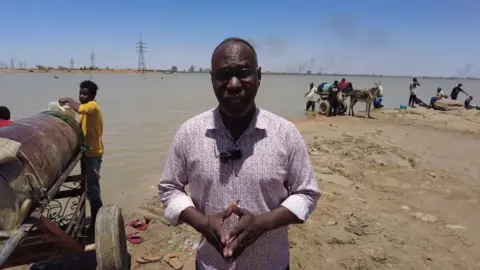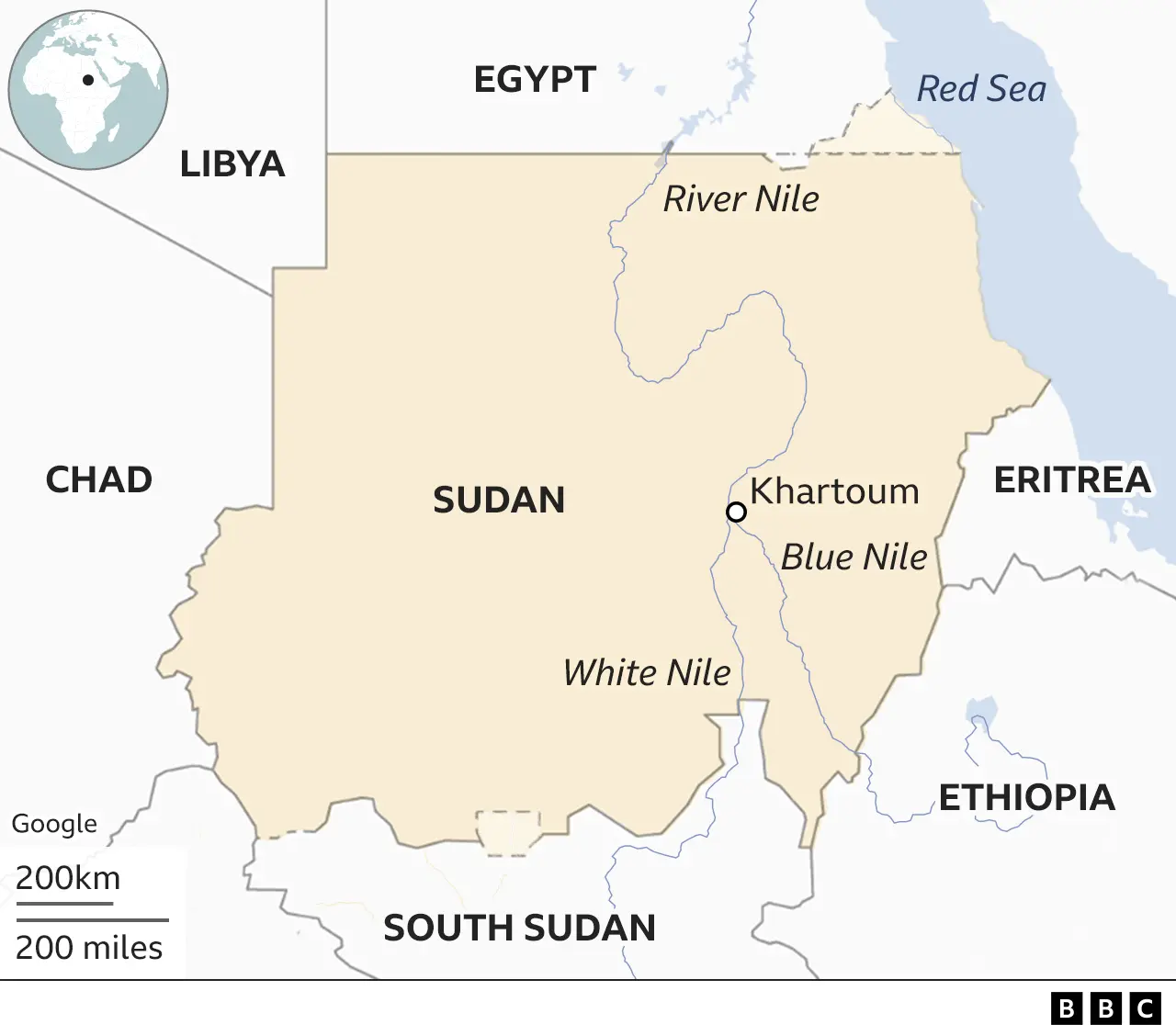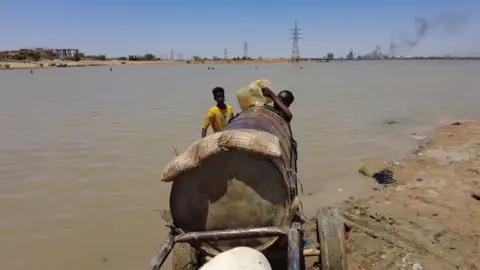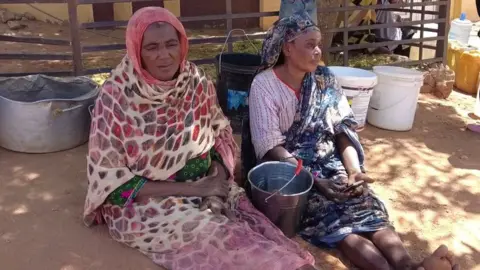Sudan conflict: 'I'm drinking water from the River Nile'
 BBC
BBCAfter six days of fierce fighting that have brought normal life to a halt in Sudan's capital, Khartoum, I have left my house for the first time.
Although I can still hear explosions and gunfire across the city, I had no choice.
We have run out of water. So I have driven to the River Nile.
At home, I have been sheltering inside with my wife and children. Clashes have been happening near my house. When we hear shelling we hide under the furniture to try and protect ourselves.
The bombing has hit key infrastructure, like water pipes. So we have no running water and the electricity and internet supply is cutting in and out. So I went to a nearby store to try and buy water and essentials - but the shop was shut.
Many families, like mine, are in the same position - stuck in their houses for days on end, running out of water and food.
So I decided to risk the journey to one of the longest rivers in the world in search of drinking water.
I drove in my car. Most of the gas stations are closed, and the prices are getting higher. But I have fuel.
I've been reporting from Sudan for almost two decades.
I've covered protests and military coups before, but this coverage is the most difficult because it's happening right on the streets around me. It feels like death is all around us.
As I make my way to the river, groups of people, like me, are flocking to this area, which is one of the places where people are collecting water.
They come here to bathe, to wash things and to get drinking water.
In this part of Sudan the White and Blue Nile move in parallel before mixing together to form the Nile as it starts its course to Egypt.

As I stand on the west bank of the river, known as the White Nile, specifically in the Fatehab area of Omdurman, I can see in the distance plumes of smoke rising from the combat zone, where heavy fighting continues despite the promise of a 24-hour ceasefire from both sides.

Here, I speak to families who have resorted to collecting water from the Nile for drinking and for other purposes.
They tell me how difficult they've found this week during the fierce fighting, especially during Ramadan and how they've been affected a lot by water cuts as well as previous droughts.
"We came here to collect water from the river, as our water has been completely cut. The power is cut too, we're in the dark. People are really, really suffering, all while everyone is fasting. The women and children are even having to help," one man explains.
Another woman tells me how she is finding it tough, especially in this 40C heat.
"I swear to you it's so hot and we have no water, we're having to sit outside. What has come of this country?" she asks. "The power has been cut for five days. We have no water and no power, we have nothing."

People gather the water, some in small buckets, which they carry away, others in big containers, on carts with wheels to make it easier to transport, often pulled by donkeys.
Everyone tends to boil the water before consuming it but I must admit it isn't completely clean.
Luckily not all neighbourhoods have had their water cut off, so some people are heading there to fill their bottles.
Although a report by Unicef and the Sudanese government into drinking water safety in Sudan, in 2017 said "the status of the water of the Nile rivers is such that no very serious contamination of water is taking place", it did warn back then, that "the water-related health risks are rapidly increasing".
It blamed such risks on an increase in the population and economic activities along the Nile (among the highest population densities in the world) and the lack of drinking water and sewage or agriculture drainage water treatment.

More about the River Nile:
- The Nile is Africa's longest river, flowing from south to north through eastern Africa
- It begins in the rivers that flow into Lake Victoria (located in modern-day Uganda, Tanzania, and Kenya), and empties into the Mediterranean Sea
- In addition to Egypt, the Nile runs through or along the border of 10 other African countries, including Sudan, Burundi, Tanzania, Rwanda, the Democratic Republic of the Congo, Kenya, Uganda, Ethiopia, and South Sudan
- Its three main tributaries are the White Nile, the Blue Nile, and the Atbara
- Sudan and Egypt have been vying for a deal with Ethiopia over a controversial dam on the Blue Nile river, which could reduce their share of Nile waters but negotiations have failed to make headway

Additional reporting by Lorna Hankin
